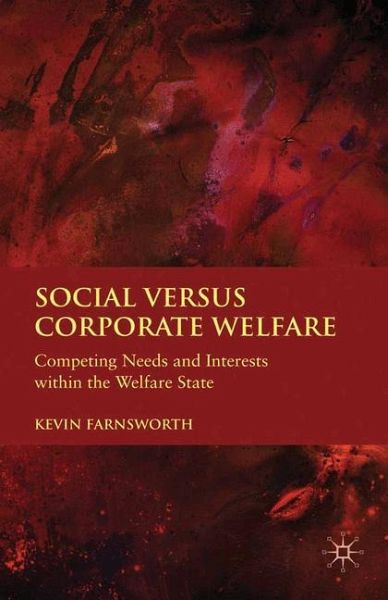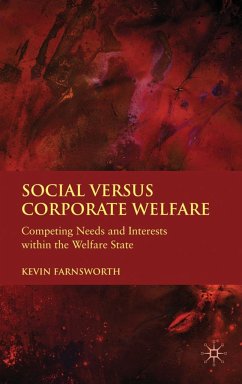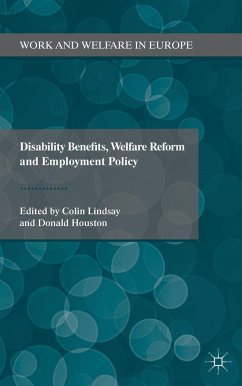
Social versus Corporate Welfare
Competing Needs and Interests within the Welfare State
Versandkostenfrei!
Versandfertig in 6-10 Tagen
38,99 €
inkl. MwSt.
Weitere Ausgaben:

PAYBACK Punkte
19 °P sammeln!
The greatest myth of modern times is the suggestion that capitalism and corporations do better with less government. The global economic crisis has certainly put paid to this idea. But the massive emergency state bailouts and interventions put in place from 2008 were unique only in their size and scale. Government programmes, designed to meet the needs of business, are not just everyday, they are everywhere and they are essential. Just as social welfare protects citizens from the cradle to the grave, corporate welfare protects and benefits corporations throughout their life course. And yet, in...
The greatest myth of modern times is the suggestion that capitalism and corporations do better with less government. The global economic crisis has certainly put paid to this idea. But the massive emergency state bailouts and interventions put in place from 2008 were unique only in their size and scale. Government programmes, designed to meet the needs of business, are not just everyday, they are everywhere and they are essential. Just as social welfare protects citizens from the cradle to the grave, corporate welfare protects and benefits corporations throughout their life course. And yet, in most countries, corporate welfare is hidden and underresearched. Drawing on comparative data from OECD states, this book seeks to shed light on the size, uses and importance of corporate welfareacross variouswelfare regimes.












